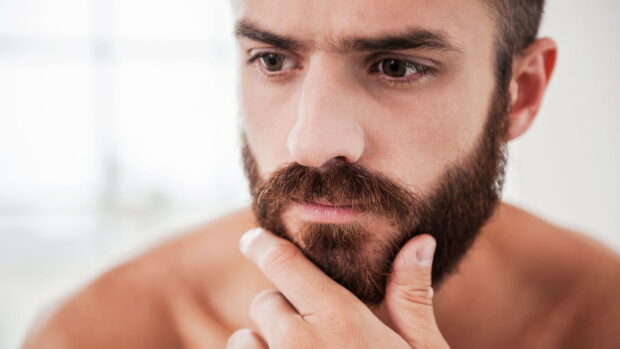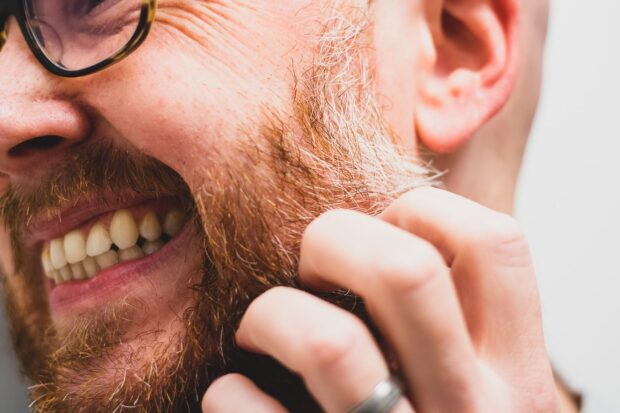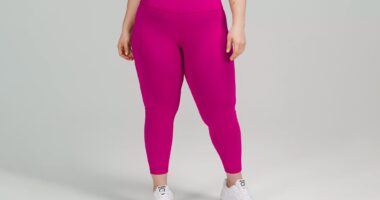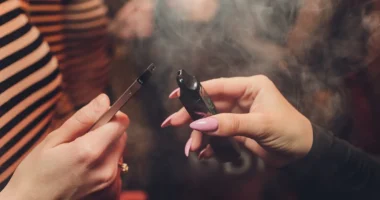If you have ever tried to grow out your facial hair, you must have experienced some sort of itching. There are many instigators of the states that can be treated at home. But you will first need to know about them to treat them better. Some people might observe more itching than others.
While you are in the process of growing a beard, you might experience severe itching, which is more common than you may think. It usually subsides after some time. But to make having a beard a pleasurable experience, it is better to treat the itch. In this article, we will be answering some of the most pressing questions related to growing a beard.
Why Does the Beard Itch?

First things first, you should know why your beard is itching. The itching can be related to a number of causes which is why finding the root of the problem is important. If you do not know the cause, you will not be able to treat it, and it will not subside. Here are some of the most common reasons behind the irritation in your beard:
Your Shaving Method
The shaving method is typically the primary reason behind irritation in a beard. Almost all the razors available today have the promise of giving you as close a shave as possible. This means that when you were clean shaved, all of your hair were removed extremely closed to the skin.
This was not a problem when you were shaving regularly and not letting those here grow back. However, if you decide to grow a beard, the hair previously inside your skin will be tearing your flash apart to come out. Consider hundreds of tiny cuts inside your skin out of which your hair is growing. No wonder you feel irritated enough to scratch the skin. Additionally, the razor while shaving cuts your facial hair at an angle.
This means that the hair will not be even and will scratch your skin when they grow out. To elaborate, when your hair grows out a certain length, they curl in on itself. When we call the tip of the hair, which is cut at an angle, it will keep on touching your skin. This causes irritation and itching.
Accumulated Dead Skin

Dead skin is a major cause of itching when you grow a beard because it is not cleaned off well. When you are maintaining a clean shave look, dead skin is being removed every day. It also becomes easy to scrub off the dead skin from your face with regular washing and scrubbing.
But when you start to grow out facial hair, cleaning becomes incredibly difficult. The dead skin will keep on getting caught in your beard, which will make it difficult to remove it. This will cause irritation and itching. Stop Beard Itch by effectively removing dead skin cells.
Not Drying the Beard Completely
You are only partially right if you think that your beard will dry itself in the sun without a problem. The beard will dry itself and the sun, but it might cause problems that you did not anticipate. A damp beard contains water molecules along with minerals that are present in tap water. The water will evaporate, but the minerals will crystallize between your hair.
This can cause irritation and itching. Additionally, a damp beard acts as a magnet for bacteria and microbes. You do not want bacteria in your beard to flourish because it will cause a lot of problems for your skin. It can cause problems way worse than itching, which is why your beard should be completely dry each time you wash your face or have a bath. Any kind of dust, minerals, and bacteria can cause irritation.
How To Solve the Problem?

If the problem you are facing is from shaving, you will have to bear through it. There is no solution to it that will immediately reduce the itching and irritation. Initially, you will have to go through some suffering until your hair is long enough to not scratch your skin. The other issues that cause irritation can be treated so that we will get to them.
If you want to reduce the irritation caused by dead skin cells, the only thing to help you out will be proper cleansing. Rather than using bar soap or shampoo, go with a beard shampoo so that it is easy on your skin and your facial hair. Make sure you are using beard shampoo, which also corresponds to your sensitive skin.
Next comes the issue of drying out your damp beard. You should be extremely careful so as to not rub your towel against your facial hair. Pat it dry as much as possible, and if any dampness remains, blow dry it. Keep the blow-dry settings at the lowest level because too much heat can damage both your skin and your hair.
How Long Will the Beard Itch For?
Typically the beard will last for at least 2 to 3 weeks when you start growing your hair. If the issue is born out of shaving, you will have to just tough it out. Be regular with washing your beard and drying it completely. Usually, in 2-3 weeks, you will start to see significant growth, which will stop irritation in your skin, and the itching will subside.
The Takeaway

You know the most common causes of irritation while growing a beard. While you do not have much control over the initial itching, you can prevent other reasons from damaging your skin and facial hair.
Be very careful with your grooming, and do not hesitate to invest in grooming and cleaning products. While growing a beard, hygiene matters a lot, so do not let it take a back seat. Use products that are good for both your skin and your hair. After a couple of weeks, you will experience the joy of having a luscious beard.




